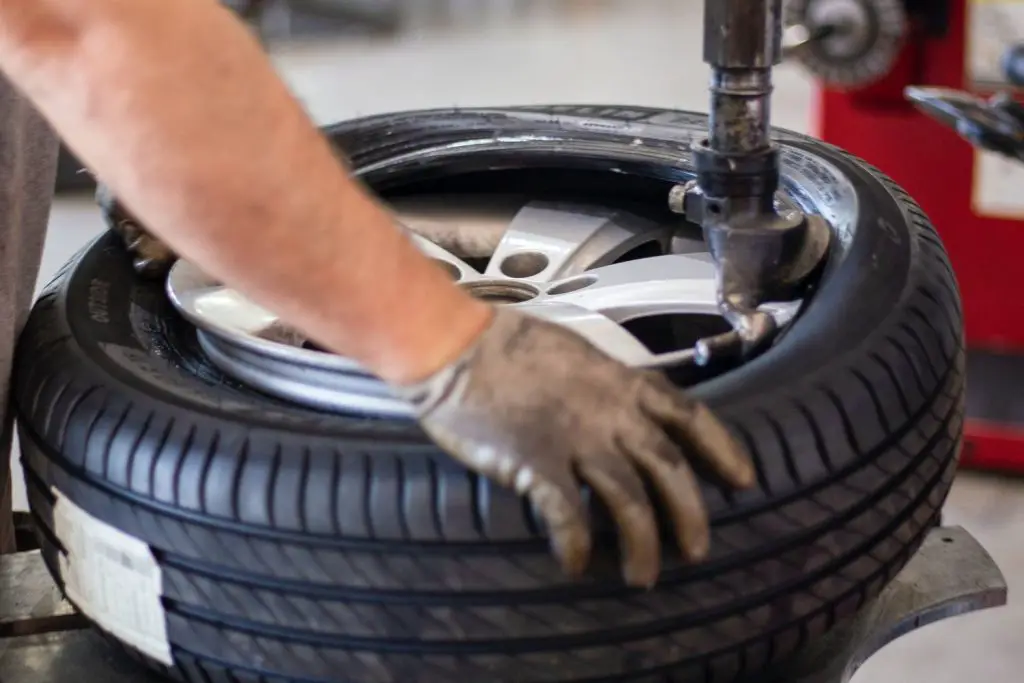Tires are an essential component of any vehicle, but they don’t last forever. Over time, the rubber breaks down and the tread wears away, eventually leading to blowouts and other serious problems.
Most manufacturers recommend replacing tires every six years or 50,000 miles (depending on the type of tire). This replacement should happen whichever comes first. If you neglect to replace your tires, you will see a lower performance or even tire blowouts.
The key is to keep an eye on the tread depth and to regularly check for signs of wear and tear. If the tread is getting shallow or the sidewalls are starting to crack, it’s time to start shopping for new tires. By taking good care of your tires, you can help keep yourself safe on the road – and save a few dollars in the process.
How do you find the age of a tire?
To find the exact age of a tire is to look at the DOT code, which is a series of numbers and letters that can be found on the sidewall of the tire. The last four digits of the DOT code indicate the week and year the tire was manufactured. For example, if the code ends in 1219, that means the tire was made in the 12th week of 2019.
Another way to tell how old a tire is is by looking at its tread depth. Tires typically have around 10/32” of tread when they’re brand new. As the tire wears down, the tread depth decreases. So, if you measure the tread depth and it’s less than 10/32”, you can assume that the tire is at least a few years old.
Finally, another way to tell how old a tire is is by its appearance. If the tire looks cracked or otherwise damaged, it’s probably time to replace it regardless of its age.
The last two ways will only give you a general idea of the age, and only the DOT code will give you the exact age of your tires.
The 5 Reasons When You Should Replace Your Tire
Car tires are one of the most important parts of a vehicle, and they need to be in good condition to ensure safe driving. Unfortunately, tires can wear down over time, reducing their effectiveness and increasing the risk of a blowout or other accidents. Here are five reasons to replace a car tire:
- The tire is old: Even if a tire doesn’t look worn out, it may still be old and dry-rotting. This can make it more likely to suffer a blowout or other failure.
- The tread is worn down: Over time, the tread on a tire can become worn down, making it less effective at gripping the road. This can increase the risk of slipping and sliding, especially in wet or icy conditions.
- The tire is damaged: A damaged tire can be susceptible to punctures and other problems. This can cause a sudden loss of pressure, which can be dangerous while driving.
- You’re driving in hazardous conditions: If you’re driving in an area with lots of potholes or sharp objects, you may want to replace your tires more frequently to avoid damage.
- You want peace of mind: Ultimately, replacing your car tires is a good way to ensure safety and peace of mind while on the road. If you’re unsure about whether or not your tires need to be replaced, it’s always best to consult with a professional.

What can happen if you don’t replace your vehicle tires on time?
Many people don’t give much thought to their vehicle tires, but they are actually a crucial part of the car. Tires provide traction and help to absorb shocks, making for a smoother ride. They also help to keep the car stable, which is especially important at high speeds.
If tires are not replaced on time, they can become bald and brittle, which can lead to blowouts and accidents. In addition, bald tires can cause damage to the pavement, which can be expensive to repair. As a result, it is important to replace your vehicle tires on time to keep yourself and other road users safe.
- HOW OFTEN SHOULD TIRES BE ROTATED: PLUS A TON MORE INFORMATION ABOUT ROTATING YOUR TIRES
- TOP 6 BEST PICKUP TRUCKS OVER 6,000 POUNDS (PLUS 12 ALTERNATIVES)
- TOP 8 BEST NEW SUVS FOR OVERLANDING
How many miles do different tires last?
1. Snow tires
Depending on the brand and quality of the tire, as well as the driving conditions, snow tires typically last between 25,000 and 30,000 miles. In order to get the most out of your snow tires, it is important to take care of them and drive carefully on snowy or icy roads. When not in use, snow tires should be stored in a cool, dry place.
They should also be inspected regularly for wear and tear and replaced when necessary. By following these simple tips, you can help ensure that your snow tires will last for many miles to come.
2. All-Season
All-season tires are designed for year-round use, but how long do they last? The answer depends on several factors, including driving habits, road conditions, and the type of vehicle. In general, all-season tires will last between 50,000 and 80,000 miles.
However, some drivers may get more mileage out of their tires, while others may need to replace them sooner. For example, people who drive mostly on smooth highways will get more miles out of their all-season tires than those who frequently travel on rough roads. Similarly, drivers who avoid braking and accelerating quickly will also get more life out of their all-season tires.
Ultimately, it’s important to pay attention to the wear and tear on your all-season tires and replace them when necessary. By doing so, you can help ensure safe and reliable performance year-round.
3. Summer Tires
Summer Tires provide better traction, handling and braking on dry and wet roads. They also offer a more comfortable ride than all-season tires. However, Summer Tires don’t last as long as all-season tires.
The average Summer Tire will last for about 20,000 – 30,000 miles. That’s about 30,000 to 50,000 miles less than the average all-season tire. So, if you’re looking for a tire that will last you a long time, you’re better off sticking with an all-season tire. But if you want a tire that will give you better performance, then a Summer Tire is the way to go.
Conclusion
Tires are an important part of a car, and it is important to replace them when necessary. Depending on the type of tire, they can last anywhere from 20,000 to 80,000 miles. However, factors such as driving habits and road conditions can affect how long tires last.
Ultimately, it’s best to consult with a professional to determine when tires need to be replaced. By doing so, you can help ensure safe and reliable performance on the road.





